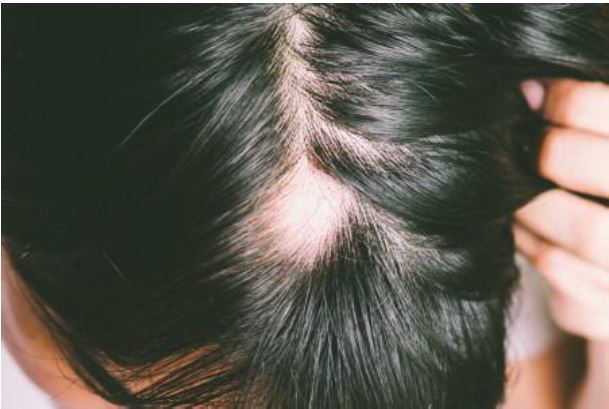Alopecia Areata: Diagnosis and Treatment
Diagnosing Alopecia Areata

What is Alopecia:
This is a disease that develops when the body attacks its own hair follicles (where hair grows from), which can cause hair loss anywhere on the body. Many people who develop alopecia areata are otherwise healthy. They have hair loss and sometimes nail changes, but they remain in good health.
The hair loss tends to be unpredictable. Hair may regrow without treatment. This happens more often when someone has a few bald patches. When the hair regrows, it may fall out again—or it may not.
If alopecia areata affects the nails, you may see dents, ridges, or brittle nails. Some people develop red nails.
When does alopecia areata usually begin?
It can begin at any age; however, most people develop it during childhood or their teenage years. About half them see their hair regrow within 12 months without treatment.
When the hair regrows, it may never fall out again. It’s also possible to have unpredictable cycles of hair loss and regrowth for years.
If a parent has alopecia areata, will a child get it?
If a parent or close blood relative has (or had) Alopecia areata, a child has a greater risk of developing this disease. While the risk is greater, not every child with this increased risk will get Alopecia areata.
Types of alopecia areata
Alopecia areata: Alopecia is the medical term for bald. Areata means patchy. This patchy baldness can develop anywhere on the body, including the scalp, beard area, eyebrows, eyelashes, armpits, inside your nose, or ears.
Alopecia totalis: The person loses all hair on the scalp, so the scalp is completely bald.
Alopecia universalis: The person loses all hair, leaving the entire body hairless. This is rare.
Research leading to new treatment
Because hair loss can greatly affect a person’s quality of life, researchers continue to study alopecia areata. Much of this research focuses on developing more effective treatments. This is giving new hope to patients, especially those living with widespread hair loss.
Dermatologists are conducting much of this research. If you are an adult with widespread alopecia areata, your dermatologist may talk with you about the possibility of joining one of these studies.
Alopecia Areata Treatment Options
If your dermatologist suspects that the cause of your hair loss could be a disease, vitamin deficiency, hormone imbalance, or infection, you may need a blood test or scalp biopsy.
Once your dermatologist has this information, it’s often possible to tell you what’s causing your hair loss.
Sometimes, your dermatologist needs more information. This might be the case if someone has more than one cause. For example, a woman may have had a baby a few months ago, and this may be causing obvious hair shedding. She may also have early hereditary loss, which isn’t so obvious.
No one hair loss treatment works for everyone
Once your dermatologist finds the cause(s), your dermatologist will tell you whether treatment is recommended. Sometimes, your hair will regrow on its own, making treatment unnecessary.
Back to Skin Condition Library >